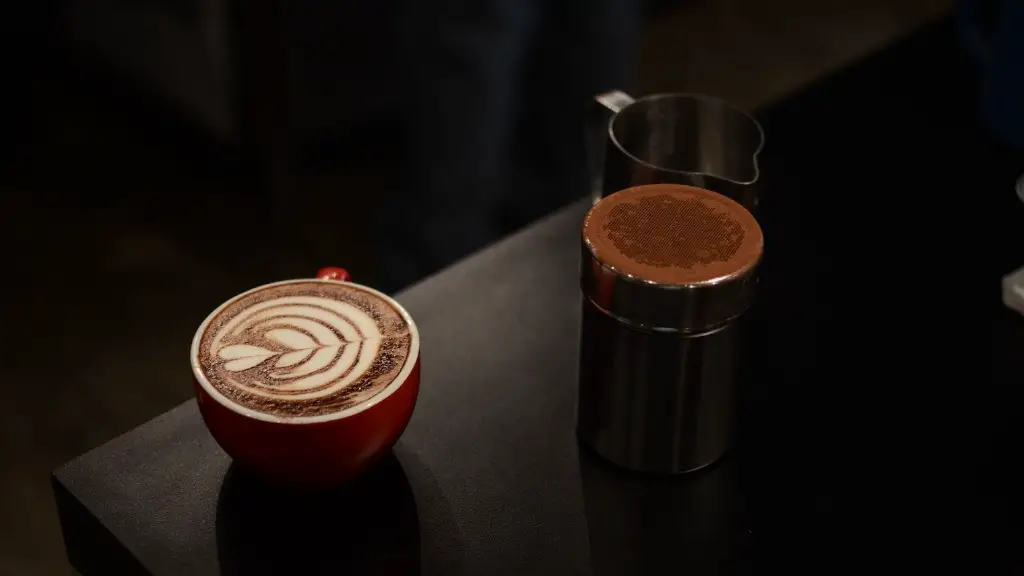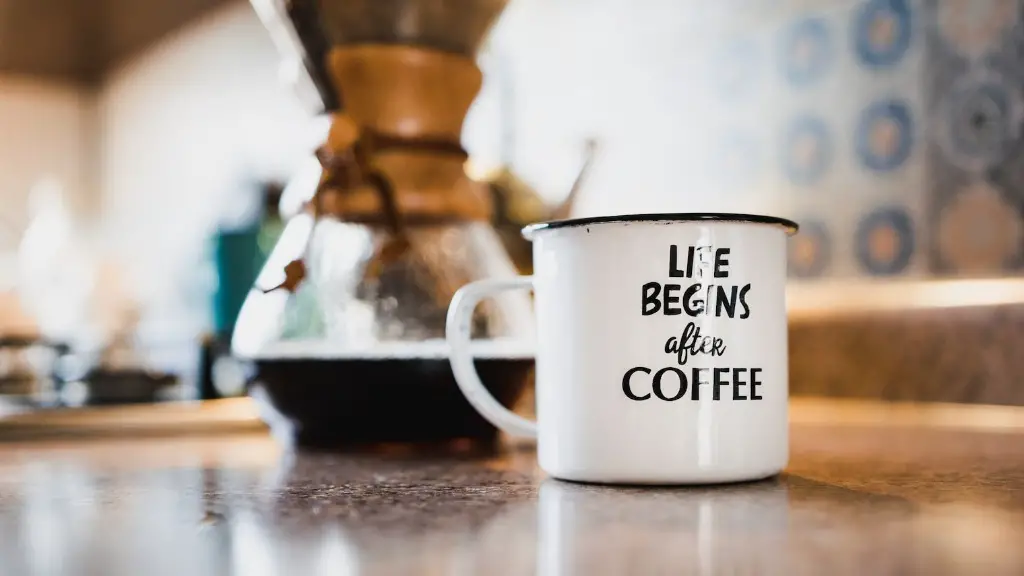Coffee is a favorite beverage among many people. When it comes to chemotherapy, many are unsure as to whether they can or should drink coffee during these treatments. The answer to this question is that it depends on the individual’s health and the type of chemotherapy that is being undergone.
For those undergoing chemotherapy, understanding the effects of caffeine intake is essential. Caffeine is known to have a stimulating effect on the body that can increase the heart rate and cause sleeplessness, anxiety and dehydration. Some people experience gastrointestinal issues from drinking coffee, including abdominal pain and diarrhea. It is also important to note that caffeine affects people differently, so individuals should be aware of how their body responds to drinking coffee before making a decision about drinking it during chemotherapy.
The reason why many individuals wonder whether or not it is safe to drink coffee during chemotherapy is because chemotherapy treatments can be hard on the body. They can often cause side effects such as nausea, vomiting and fatigue. For this reason, it is important to consider if drinking coffee while undergoing chemotherapy is a good idea, as caffeine can exacerbate some of these side effects.
It is also important to consider the frequency and amount of coffee that is being consumed when undergoing chemotherapy. It may be wise to limit how much coffee is consumed in a day, and slowly increase the amount as the individual gets accustomed to it. Additionally, it is important to ensure that the coffee is not overly acidic, as this can further exacerbate side effects like nausea and vomiting.
It is important for those undergoing chemotherapy to speak to their doctor about their consumption of coffee and other caffeinated beverages. It is also wise to consult a dietician in order to ensure that the individual is getting the necessary nutrients for their condition, as well as any special dietary requirements that may be needed in order to help alleviate the side effects of chemotherapy.
When it comes to drinking coffee while undergoing chemotherapy, it is important to discuss any pros and cons with a doctor to make an informed decision. With the right information and understanding, individuals can make decisions that will help them maintain their health and energy during the chemotherapy process.
Effects of Caffeine on Chemotherapy
Caffeine can affect chemotherapy treatments in a variety of ways. The most common effect is increased enernes. Caffeine can improve the individual’s focus and alertness level during chemotherapy, but it can also make them overly anxious, which can be unpleasant. Caffeine can also affect the individual’s ability to sleep, as well as how long they remain awake during the day. This can be especially detrimental during chemotherapy treatments as it can cause fatigue, which can make the side effects of chemotherapy more severe. Additionally, caffeine can interact with common chemotherapy medications, which can make them less effective.
Another effect of caffeine is that it can speed up the body’s metabolism, which can be beneficial in some ways. However, it can also make recovering from chemotherapy treatments more difficult as it can cause rapid weight loss and dehydration. Additionally, caffeine can make it more difficult to absorb certain medications, which is why it is important to speak to a doctor about any effects that caffeine may have on chemotherapy treatments.
What Kind of Coffee Should Someone Have?
When it comes to consuming coffee during chemotherapy, it is important to choose the right kind. It is best to avoid coffee drinks that have a lot of added sugar and cream as these can be difficult to digest. Additionally, it is important to avoid caffeinated drinks that contain large amounts of caffeine, such as energy drinks. Instead, individuals should opt for coffee that is lower in caffeine and has a milder flavor. Additionally, cold brewed coffee can be easier to consume than traditional hot coffee as it is generally less acidic.
It is also important to keep in mind that some kinds of coffee can have additional health benefits. For example, some studies have suggested that dark roast coffee has antioxidants that can help fight off free radicals in the body, which can aid in recovery from cancer treatments. Additionally, some decaffeinated coffees can still contain small amounts of caffeine, which may be beneficial for individuals who are sensitive to caffeine.
Other Alternatives to Coffee
For those who cannot or do not want to drink coffee during chemotherapy, there are other alternatives that can provide similar benefits without the caffeine. Herbal teas are generally low in caffeine and have a variety of flavors to choose from. Additionally, some teas have been found to have additional health benefits, such as reducing inflammation and boosting the immune system. Additionally, some foods and drinks such as yogurt, milk and omega-3 rich foods may help combat fatigue, boost the individual’s energy level and aid in recovery from chemotherapy treatments.
Additionally, there are several supplements that can provide benefits for individuals undergoing chemotherapy, such as omega-3 fatty acids, B vitamins, and various herbal remedies. However, it is important to note that it is best to discuss these supplements with a doctor or dietician first to ensure that they are safe to take and that they are not likely to interact with any medications that the individual is taking.
When Should Someone Not Drink Coffee?
There are certain situations in which it is not advisable to drink coffee while undergoing chemotherapy, such as if the individual has specific health issues or if they are taking certain medications. It is also important to note that pregnant and breastfeeding women should discuss their coffee intake with their doctor, as caffeine can be passed on to their baby. Additionally, individuals who are sensitive to caffeine should avoid it as it can cause side effects such as headaches, insomnia and anxiety.
For those who decide to drink coffee during chemotherapy, it is important to start off slowly and monitor its effects on the body. It is also wise to limit coffee consumption to no more than two cups per day, and to always drink it in moderation. Additionally, it is important to ensure that the coffee is of a quality that is safe to consume, and that it is not overly acidic.
Limitations of Drinking Coffee
Despite coffee having some positive effects on the body, it is important to keep in mind that it can also have negative effects. For example, coffee can interact with medication and make them less effective. Additionally, some individuals may be sensitive to the effects of caffeine and can suffer from side effects such as headaches, insomnia and anxiety. It is important to note that caffeine can also affect how the body absorbs vital nutrients, so it is important to discuss any effects with a doctor or dietician before drinking coffee while undergoing chemotherapy.
When it comes to drinking coffee while undergoing chemotherapy, it is important to discuss the benefits and risks with a doctor. With the right information and understanding, individuals can make decisions that will help them maintain their health and energy during chemotherapy treatments.
Finding Support During Chemotherapy Treatments
Undergoing chemotherapy is an incredibly difficult experience and individuals may often feel overwhelmed or isolated. It is important to remember that there are resources available that can offer individuals support and guidance during this difficult time. Speaking to trusted friends and family members can help provide the individual with a sense of comfort and understanding during the process. Additionally, support groups and online forums can provide individuals with additional resources and help them to feel more connected during their treatments.
Additionally, there are books and other forms of literature that can provide valuable information about chemotherapy and offer advice for living with the disease. Finally, it is important to remember that there are professionals such as doctors, nurses, and dieticians that are available to discuss any concerns or questions that the individual may have.
Find the Right Balance for Your Chemotherapy Treatments
When it comes to deciding whether or not to drink coffee during chemotherapy treatments, it is important to consider the individual’s health and the type of chemotherapy that is being undergone. It is also important to discuss the benefits and risks with a doctor and to limit coffee consumption to no more than two cups a day. Additionally, it is wise to consider other alternatives that may offer similar benefits without the caffeine, such as herbal teas and other foods and drinks.
Finally, it is important to remember that there are resources available that can offer individuals support and guidance during chemotherapy treatments. Speaking to trusted friends and family members, attending support groups and reading up on the condition can all be beneficial for those undergoing chemotherapy.





